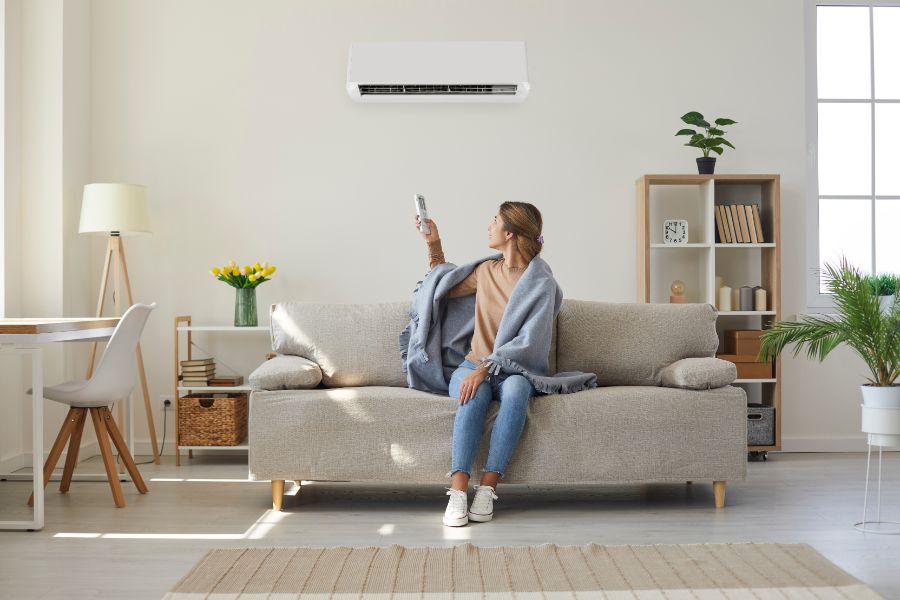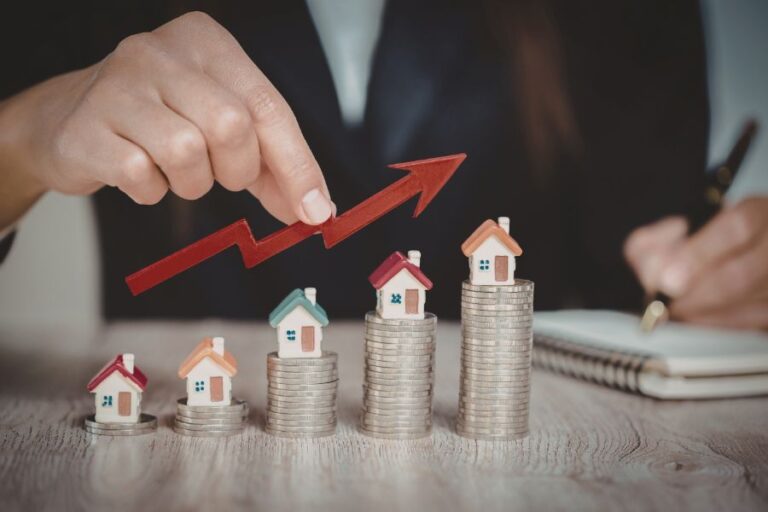In Wellington’s dynamic property market, the value of a rental doesn’t just come from its location or architectural charm but increasingly from its status as a ‘healthy home’. With the introduction of the Healthy Homes Standards in 2019, Wellington landlords are under more scrutiny to ensure their properties provide a warm, dry, and safe environment for tenants. This comprehensive guide serves not only as your roadmap to legal compliance but also as a beacon towards reaping the long-term benefits of owning a healthy, sustainable rental property.
Understanding the Legal Requirements
Wellington landlords are bound by specific regulations that set the minimum standards for heating, insulation, ventilation, moisture ingress and drainage, and draught stopping in rental properties. You can learn more about these key areas on the Government’s Tenancy website.
Heating: Ensure there is a fixed heating device capable of achieving a minimum temperature of 18°C in the main living area. For most Wellington homes, this means a device with at least 1.5 kW output.

Insulation: Rentals must have ceiling and underfloor insulation that meets or exceeds the 2008 Building Code. An R-value of 3.3 for ceilings and R-1.3 for underfloors is recommended for Wellington homes to combat the chilly winters. Read more about insulation on the Tenancy website.
Ventilation: Habitable spaces need windows that open or other forms of effective ventilation. Kitchens and bathrooms should have extractor fans to manage moisture.
Moisture and Drainage: Address potential moisture issues by ensuring proper drainage around the foundation and checking for leaks in roofs, pipes, and windows. This might involve clearing gutters regularly and maintaining proper ventilation to prevent mould growth.
By adhering to these basic requirements, you’re on the right path to compliance; however, the aspirations of a forward-thinking landlord should surpass merely ticking boxes.
Beyond the Basics: Owning a Healthy Rental
While the above ensures compliance, here’s what sets your rental apart:
- Double Glazing: Wellington’s known for its cool winds. Upgrading to double-glazed windows can significantly improve heat retention and reduce energy bills for both you and your tenants. While not mandatory, it demonstrates your commitment to a healthy and energy-efficient home.
- Dehumidifiers: Consider offering dehumidifiers as optional extras, especially in older or poorly ventilated properties. This can be particularly helpful for tenants drying laundry indoors during Wellington’s damp winters.
- Regular Maintenance: Schedule regular inspections for heating systems, ventilation systems, and any potential moisture issues. This proactive approach prevents minor problems from escalating into major repairs and ensures a consistently healthy living environment for your tenants.

Implementing Sustainable and Healthy Practices
Energy-Efficient Upgrades: Consider installing energy-efficient heating solutions and LED lighting. The upfront cost is counterbalanced by the reduction in energy bills and the appeal to environmentally conscious tenants.
Eco-friendly Materials and Cleaning Products: Opting for low-VOC paints, biodegradable cleaning agents, and natural materials when renovating not only improves indoor air quality but also appeals to health-conscious renters.
Sustainable practices are not merely trendy; they’re a testament to your investment in the property’s and the planet’s future.
Ensuring Comfort and Safety for Tenants
A landlord’s responsibilities extend beyond legal compliance. Regular maintenance checks, especially for heating, ventilation, and moisture control systems, can prevent major issues down the line. Enhancing your property’s security with modern locks, security alarms, and well-lit exteriors can make all the difference in tenant satisfaction and retention.
Planning for the Future: Maintenance Schedules and Budgeting
The creation of a comprehensive maintenance schedule and setting aside a budget for potential issues is crucial. Anticipate wear and tear and be prepared for it. Incorporating tools and apps designed for property management can alleviate much of the stress associated with these tasks, allowing you to focus on maximising your investment.

Compliance with the Healthy Homes Standards is not just about fulfilling a legal requirement; it’s a strategic investment that pays off by significantly reducing long-term maintenance costs. By adhering to these standards, you proactively address potential health risks and structural issues that could lead to expensive repairs down the line.
Proper ventilation, heating, and moisture control not only make the property more appealing to prospective renters but also mitigate the risk of damage caused by mould, mildew, and structural decay. In essence, the initial investment in meeting these standards can save landlords a substantial amount of money by preventing the need for frequent, costly maintenance tasks in the future.
Conclusion
Meeting Wellington’s Healthy Homes Standards is more than a legal requirement; it’s an investment in your property’s future and a commitment to providing a quality living environment for tenants. By following the above checklist and striving to exceed these standards, landlords can enhance their property’s value, attract and retain quality tenants, and contribute to the overall well-being of the Wellington community.
Remember, the goal isn’t just to comply with the Healthy Homes Standards but to champion them, showing leadership in creating a sustainable, healthy future for Wellington’s rental market.
For more resources and to stay updated on the latest in landlord responsibilities, visit Tenancy Services and the Wellington City Council websites. Your role in shaping the future of Wellington’s rental properties is crucial, and with this comprehensive guide, you’re well on your way to success.
Resources and Support
Remember, a healthy rental property benefits everyone. By following these guidelines and going the extra mile, you can attract responsible tenants and ensure your investment thrives. Here are some helpful resources:
- Tenancy Services: https://www.tenancy.govt.nz/healthy-homes/
- Healthy Homes Standards Wellington City Council: https://wellington.govt.nz/climate-change-sustainability-environment/sustainable-living/sustainable-homes-and-buildings/healthy-homes-requirements


